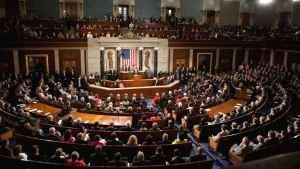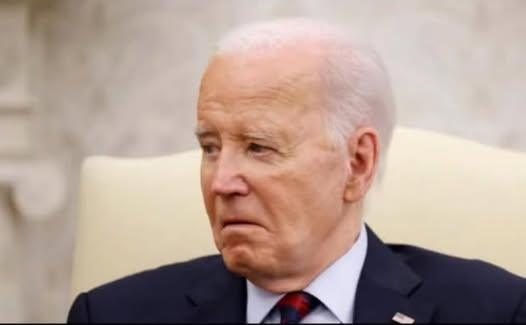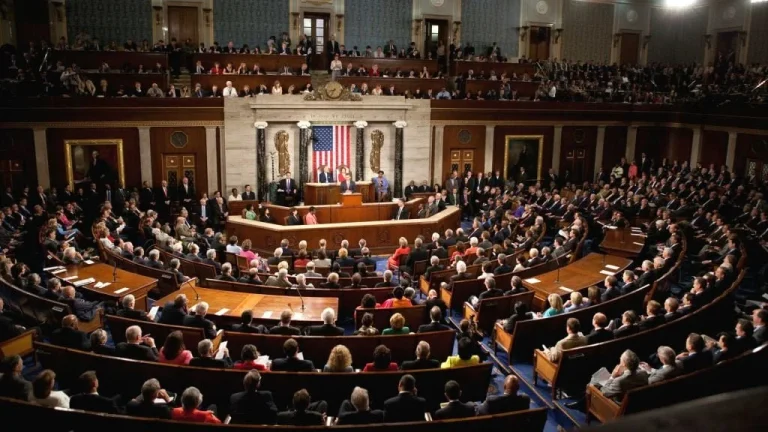NOTE: VIDEO at the end of the article.
Senator Josh Hawley (R-Mo.) made headlines this week following an appearance on Fox News’ “Hannity,” during which he shared an unverified and controversial claim about President Joe Biden’s mental fitness while in office. Citing a self-described whistleblower from the United States Secret Service, Hawley alleged that Biden was, at times, so cognitively impaired that he would reportedly “get lost in his closet” at the White House residence.
The comment came as part of a broader discussion with host Sean Hannity concerning ongoing investigations into the Secret Service and its conduct during several high-profile incidents, including attempted threats against former President Donald Trump.
“This Secret Service whistleblower actually was assigned to Biden,” Hawley told Hannity during the May 31 broadcast. “He told me that Biden used to get lost in his closet in the mornings at the White House.”
Hawley, a member of the Senate Judiciary Committee, said this allegation was one of several pieces of information shared with him by agents or individuals connected to the Secret Service. He claimed these conversations took place during the course of discussions related to the agency’s internal culture and handling of presidential protection protocols.
“The president of the United States. This is outrageous,” Hawley said. “We were lied to.”
A Claim Without Corroboration
As of June 1, 2025, the specific allegation made by Hawley has not been independently confirmed or supported by any official documentation, photographic evidence, or corroborating witnesses. The identity of the alleged whistleblower has not been revealed, and the Secret Service has not issued a statement addressing the senator’s claim.
Moreover, no mainstream news outlet has verified the incident. Several media organizations, including The New York Post and The Daily Beast, have reported Hawley’s remarks but have not substantiated the content of the claim with independent investigation.
In journalism and legal circles, whistleblower accounts—especially those involving national security personnel—must typically be subjected to rigorous verification. Without details such as the date of the alleged incident, the identity of the source, or any internal documentation, such claims remain anecdotal and speculative.
Biden’s Age and Cognitive Fitness: A Longstanding Political Debate
President Joe Biden, who turned 82 in November 2024, has faced repeated scrutiny over his age and cognitive health throughout his presidency. Conservative politicians and commentators have frequently highlighted moments—ranging from verbal gaffes to physical stumbles—as potential signs of decline.
However, Biden has also had periods of energetic public appearances and has completed physically demanding international trips and complex negotiations, including the 2023 debt ceiling standoff and several multilateral summits during his presidency.
In a White House physical conducted in early 2024, Dr. Kevin O’Connor, Biden’s longtime physician, wrote that the president was “fit for duty and fully executes all of his responsibilities without any accommodations.” The report did not indicate cognitive impairment and emphasized that Biden maintains an active exercise routine.
Still, concerns have lingered, both among voters and even within the Democratic Party. Some political observers note that Biden’s communication style—more halting and deliberate than in his younger years—has raised legitimate questions among constituents, especially when contrasted with the fast-paced demands of modern political leadership.
These questions were amplified by reporting from CNN anchor Jake Tapper and Axios journalist Alex Thompson in their book Original Sin, published earlier this year. The book alleges that some members of Biden’s inner circle sought to manage or obscure visible signs of age-related decline, including suggestions about using a wheelchair during a second inauguration.
Among the anecdotes in Original Sin is a claim that Biden at times struggled to recall names of longtime associates and sometimes displayed moments of confusion during private meetings. While not independently confirmed, the book has contributed to the ongoing national dialogue about age and leadership fitness.
The Political Stakes Behind the Claim
Senator Hawley’s decision to go public with such a sensational claim may reflect deeper political currents. As the 2024 presidential election cycle concluded with Donald Trump securing a second term, criticism of Biden—who chose not to run for re-election—has taken on new urgency among Republicans seeking to reframe his legacy.
By suggesting that key information about Biden’s mental health was withheld from the public or obscured by officials, Hawley appears to be setting up a larger argument: that the American people were misled about the president’s true condition. It’s a serious charge, one that would require substantial evidence to justify.
The rhetorical strategy isn’t new. During Biden’s term, some Republican lawmakers and right-leaning commentators frequently suggested that White House staff or family members were making decisions on his behalf or shielding him from unscripted public appearances.
However, these narratives have often conflicted with images of Biden actively participating in lengthy legislative battles, delivering State of the Union addresses, and engaging with world leaders at summits.
Reaction and Responsibility
As of this writing, the Biden family and former White House aides have not publicly commented on Hawley’s remarks. The Secret Service also has not issued a formal statement about the alleged whistleblower.
It’s unclear whether Hawley will pursue further action in the Senate based on this account. Whistleblower protections do allow federal employees to report misconduct or cover-ups to members of Congress, but claims involving national security and presidential conduct typically require classified briefings and careful legal consideration.
If more information emerges—particularly if the alleged whistleblower decides to testify or provide documentation—Hawley’s claim may attract further congressional or public attention. Until then, journalists and citizens alike are encouraged to assess such claims critically, particularly when they originate from unnamed sources without verifiable context.
The Broader Issue: Age, Transparency, and the Presidency
Whether or not this specific anecdote is ever substantiated, it underscores a broader issue that will likely persist in American politics: how to balance transparency about a leader’s health with the demands of privacy, national security, and public confidence.
Age and fitness for office are not partisan concerns. As the American population ages, and as candidates increasingly run for office well into their seventies and eighties, voters across the spectrum are asking more pointed questions about the physical and cognitive demands of leadership.
In this context, it is vital that reporting—and political rhetoric—be grounded in verified fact rather than conjecture or partisan insinuation. Accusations like the one made by Senator Hawley are serious. If they are true, they deserve full investigation. If they are not, they risk undermining the public’s trust in institutions, media, and democracy itself.
PLAY:

James Jenkins is a celebrated Pulitzer Prize-winning author whose work has reshaped the way readers think about social justice and human rights in America. Raised in Atlanta, Georgia, James grew up in a community that instilled in him both resilience and a strong sense of responsibility toward others. After studying political science and creative writing at Howard University, he worked as a journalist covering civil rights issues before dedicating himself fully to fiction. His novels are known for their sharp, empathetic portraits of marginalized communities and for weaving personal stories with broader political realities. Jenkins’s breakout novel, Shadows of Freedom, won national acclaim for its unflinching look at systemic inequality, while his more recent works explore themes of identity, resilience, and the fight for dignity in the face of oppression. Beyond his novels, James is an active public speaker, lecturing at universities and participating in nonprofit initiatives that support literacy and community empowerment. He believes that storytelling is a way to preserve history and inspire change. When not writing, James enjoys jazz music, mentoring young writers, and traveling with his family to explore cultures and stories around the world.







